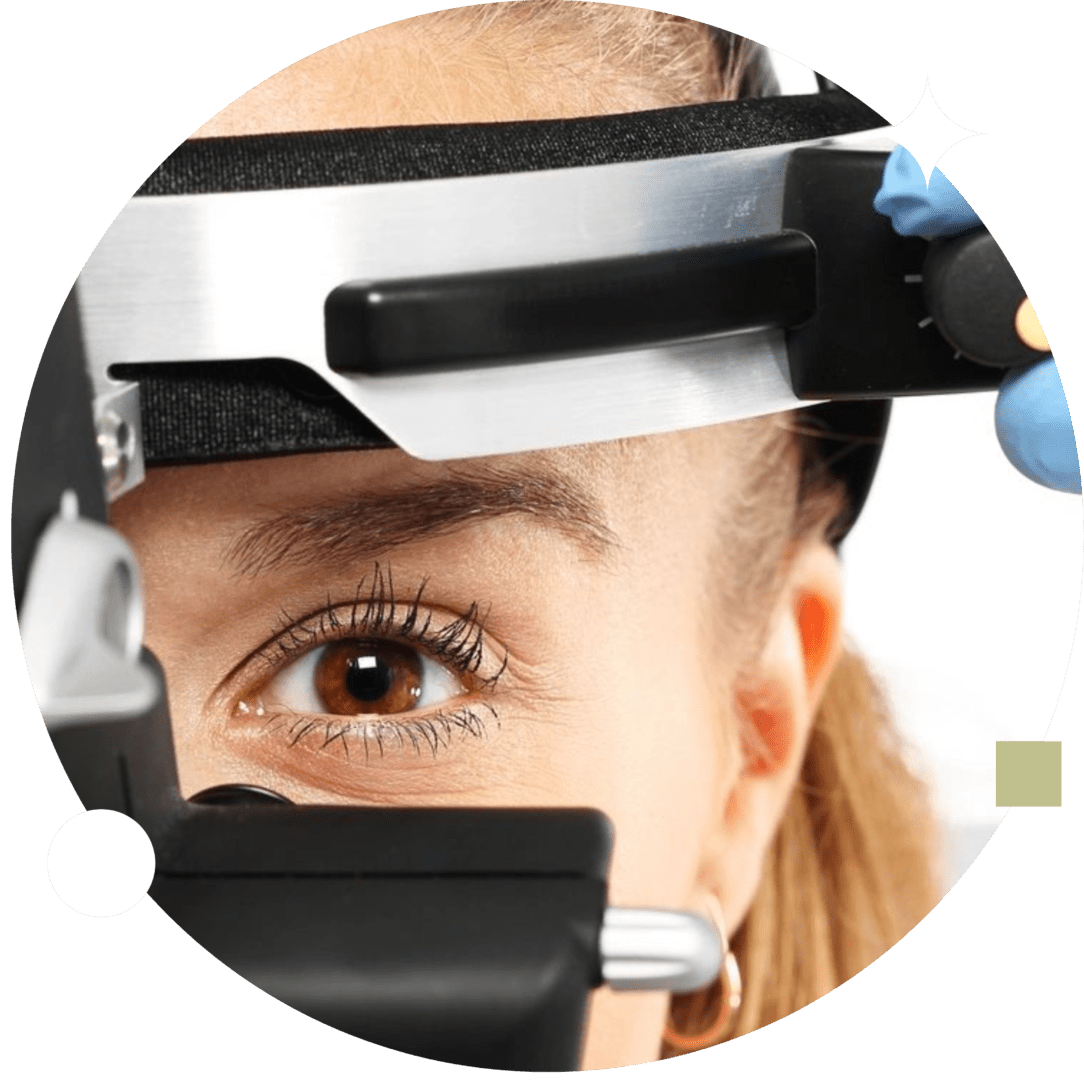Carolyn LoBocchiaro, O.D. Optometric Physician Diplomate, American Board of Optometry
New Jersey’s Trusted Optometric Physician
“There’s More to an Eye Exam Than Just Reading the Chart.”
DILATED EXAM
What Is a Dilated Exam?
A dilated exam is a diagnostic procedure in which medication is instilled into the patient's eyes in order to enlarge the pupils. This allows the health of the entire retina (tissue lining the inside of the eye) to be assessed.
In the non-dilated state, only the central portion of the retina and the optic nerve can be seen. Examining the entire retina is important in detecting certain diseases that may only show up in areas not usually seen during a regular examination.

Who Should Have a Dilated Exam?
This exam is recommended for all patients but is especially important for those with certain risk factors, such as:
- People with moderate to severe nearsightedness
- People with a systemic condition, especially diabetes or hypertension
- People with a family history of ocular diseases such as cataracts, glaucoma, macular degeneration, or retinal detachments
- People with complaints of flashes or floaters
Exam Side Effects
The medication used to dilate pupils takes four to six hours to wear off completely. However, the patient usually notices a lessening of the side effects after two hours.
During this period, the person's vision will be sensitive to outdoor light and blurry for reading. It is recommended that the patient brings sunglasses to protect their eyes. Disposable sunglasses will be provided if the client doesn’t bring their own.
If the patient has never had a dilated eye exam before, it is suggested he/she not drive afterward.
Can I Refuse to Get a Dilated Eye Exam
Yes. Dr. LoBocchiaro can still perform a comprehensive eye exam, determine your prescription, and evaluate the health of the front of your eyes and the central part of the inner retina. You can reschedule the dilation at a more convenient time.
Hypertension and Your Eyes
It is important for people diagnosed with hypertension to have routine dilated eye exams. Monitoring the retina is an effective way to keep track of someone’s condition. The sooner they are diagnosed, the easier they are to treat.
Another benefit of retinal monitoring is that it gives the treating physician more information to help control a person’s blood pressure between office visits.
Retinal Changes Associated With Hypertension
- Narrowing and tortuous (full of twists and turns) blood vessels
- Weak and leaky blood vessels which cause retinal swelling and bleeding
- Blocked blood vessels, causing tissue destruction and vision loss
Diabetes and Your Eyes
Routine dilated examinations are key for monitoring a person’s diabetic condition. Some complications caused by diabetes, such as circulation problems, are easily detected on the retina. If left unchecked, these complications can lead to irreparable vision loss.
Retinal Changes Associated with Diabetes
- Retinal Bleeding
- New Leaky Blood Vessel Growth
- Swelling in the Macula (the area of the eye responsible for detailed vision)
